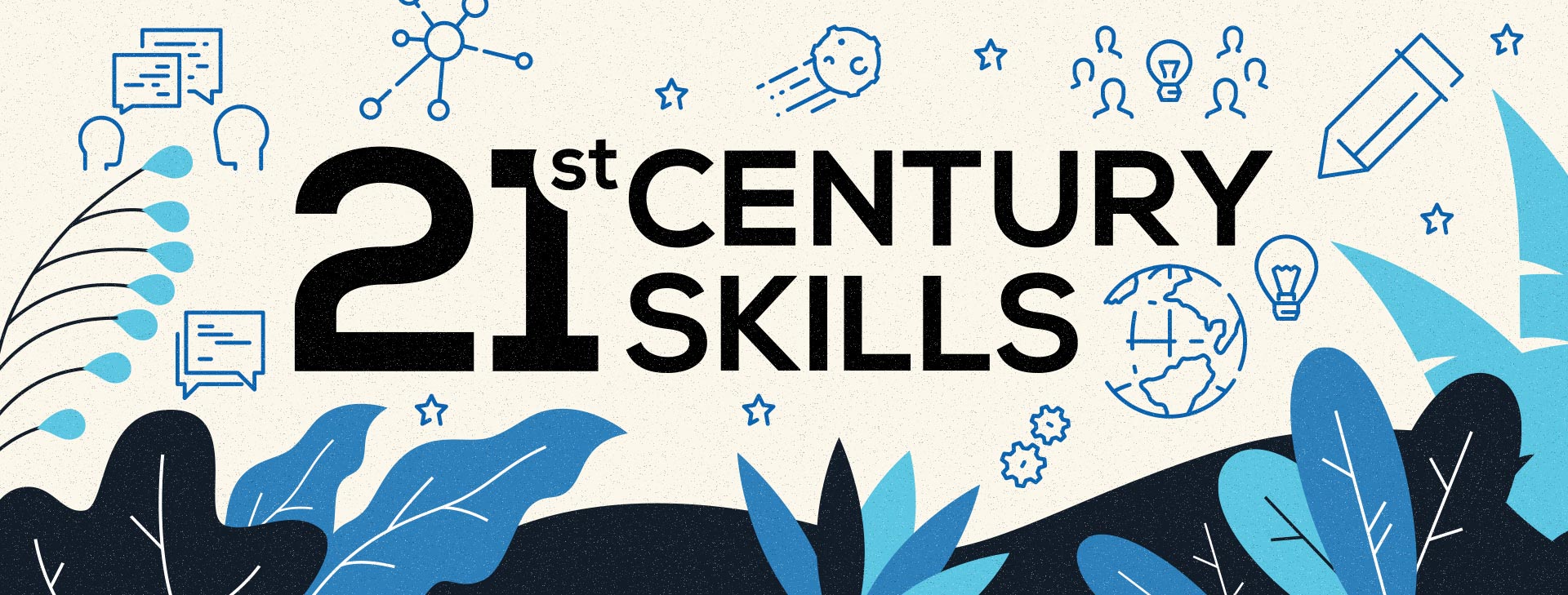
Teaching & Assessing 21st Century Skills: A Focus on Collaboration
Research and Best Practices: One in a Series on 21st Century Skills
For the full collection of related blog posts and literature reviews, see the Center for Assessment’s toolkit, Assessing 21st Century Skills.
Collaboration (as discussed in the full literature review) is often cited as a vital student success skill necessary for work and life in the 21st century. Unfortunately, the term is conceptually vague and needs a careful definition. Greater clarity of its components allows educators to teach students essential collaboration skills and provide meaningful and actionable feedback on the development of their collaboration skills.
Definition
Collaboration can be thought of as either a process or an outcome of joint activity, with the former being typically more in line with how it has been used in the 21st Century skills movement. When synthesizing definitions across the research literature, three fundamental aspects differentiate collaboration from other related activities, such as cooperation and coordination.
- Two or more students working interdependently.
- Who participate in a genuine joint activity (e.g., solve a problem, complete a task, design a product, etc.)
- By pooling their knowledge, skills, and efforts.
Several collaboration skills are consistently repeated across the research literature to operationalize these three fundamental aspects for instruction and assessment purposes. These include the knowledge, skills, and disposition to:
- Plan and make group decisions – Decide with the group how best to manage and complete the task or project, work with the group to assign roles or tasks, use negotiation or conflict-resolution skills as necessary to plan and make group decisions.
- Communicate about thinking with the group – Seek clarity about others’ thinking, respectfully express how thinking makes sense or is lacking in some way, solicit alternative perspectives and input from all group members, elaborate on the explanations of others.
- Contribute resources, ideas, and efforts and support group members – Contribute ideas, efforts, and resources, support group members as needed, take responsibility for task assignments and work quality, check in with group members about progress, provide feedback on the work of others.
- Monitor, reflect, and adapt individual and group processes to benefit the group – Reflect on individual and group progress and processes, work with the team to adjust group efforts to meet the goal, adapt individual and/or group processes to benefit the group.
Collaboration skills are both generic and content/context-specific in that the collaborative skills themselves do not typically vary across content areas. However, the content and context in which the collaborative activity is situated can have a significant effect on the students’ ability to transfer their skills. For example, students can contribute much more effectively in collaborative tasks—offering resources, ideas, and efforts—when they have at least some content knowledge. Without such knowledge, students act more as observers than as true collaborators. Collaboration is also intertwined with other cognitive, interpersonal, and intrapersonal competencies: effective collaboration requires communication skills, metacognition, self-direction, and so on.
Development of Collaboration Skills
We know little about how collaboration develops over time. Research about the developmental nature of collaboration is limited, and there is no research-based sequence of learning 21st Century skills—descriptions of how students typically achieve mastery from less to more sophisticated—that yet exists. The existing research typically is observational, producing descriptions of ways students may demonstrate success skills.
Instruction to Support the Development of Collaboration
There is no evidence that merely placing students in a group will teach or improve student collaboration skills. Most of us have been assigned a group project where the work is divided into smaller pieces, completed independently, and then the parts are put together. This type of group work does not require collaboration and is better described as parallel work.
Teachers play a significant role in setting up the conditions for collaboration to occur. Specifically, teachers should attend to group formation, their role in scaffolding and modeling collaborative skills, task/project structure and design, and feedback to help improve student learning.
- Group formation: Generally, with more students in a group, the easier it is for a student to free ride—letting other students do the work. Heterogeneous grouping appears to benefit lower-achieving students.
- Participation guidelines: Collaboration is more likely when teachers set clear guidelines for group participation, such as supporting ideas with reasons or discussing alternative solutions. Teachers also support collaboration when they establish norms for group communication and model those norms.
- Task structure/activation: Rote learning and simple tasks are less likely to promote collaboration. The structure of the task must activate particular learning processes and mechanisms for effective collaboration to occur. Tasks should be sufficiently complex, authentic, and novel to elicit elaborated explanations and group thinking so that all students—not just the highest achieving—can demonstrate the desired performance.
- Teacher Feedback: The teacher plays a critical role in monitoring the collaborative activity and providing students with formative feedback on the quality of their collaborative effort during and at the end of a project (Webb & Mastergeorge, 2003). Teachers need to anticipate negative group behaviors, such as free riding, and continuously monitor group interactions.
- Time for Reflection: Throughout a project, teachers can also specify time for students to reflect on their own individual participation and the group’s processes and progress. Such reflections can be critical for improving the collaborative experience and collecting evidence about the quality of student interactions for assessment purposes.
Implications of Research for Classroom Assessment Design
Assessing 21st Century skills such as collaboration is challenging. The evidence collected about students’ collaborative skills is not likely to come from a final student or group work product. Collaboration, as understood in the 21st Century skill movement, is a process, not an outcome. Therefore teachers will need to use specific prompts or probes embedded in student and peer reflections/evaluations to gather evidence about students’ application of collaborative skills while completing assessment tasks. These prompts could be used to collect evidence both during and at the end of an assessment task.
Additionally, there are certain features of assessment tasks that encourage collaborative activity. Assessments must be thoughtfully designed and structured to prompt, or elicit, students’ collaborative skills. For example, assessment tasks that are overly simplistic or routine do not require students to collaborate by negotiating ideas or pooling resources, ideas, and efforts (Lai & Viering, 2012). The task should enable group discussion and thinking, requiring group members to share the cognitive load (Child & Shaw, 2016). Assessment tasks that encourage this type of joint, collaborative activity are sufficiently complex and challenge student thinking.
One caveat related to assessing students’ collaboration skills is that context and culture matter. Collaborative tasks that work well in one setting, context, or culture may not work equally well in another (Care, Kim, Vista, & Anderson, 2018; Soland, Hamilton, & Stecher, 2013). Attending to cross-cultural validity is critical, although sparse in the literature (Ercikan & Oliveri, 2016). As Soland et al. (2013) argue, “Extra caution is warranted when considering measures of 21st Century competencies, particularly interpersonal and intrapersonal competencies, because these may be more culturally and contextually dependent than traditional academic skills. To the extent possible, the validity of scores on a given measure should always be confirmed locally” (p. 41).
For a more complete discussion of the topics covered in this post, the full literature review on collaboration is available here.
